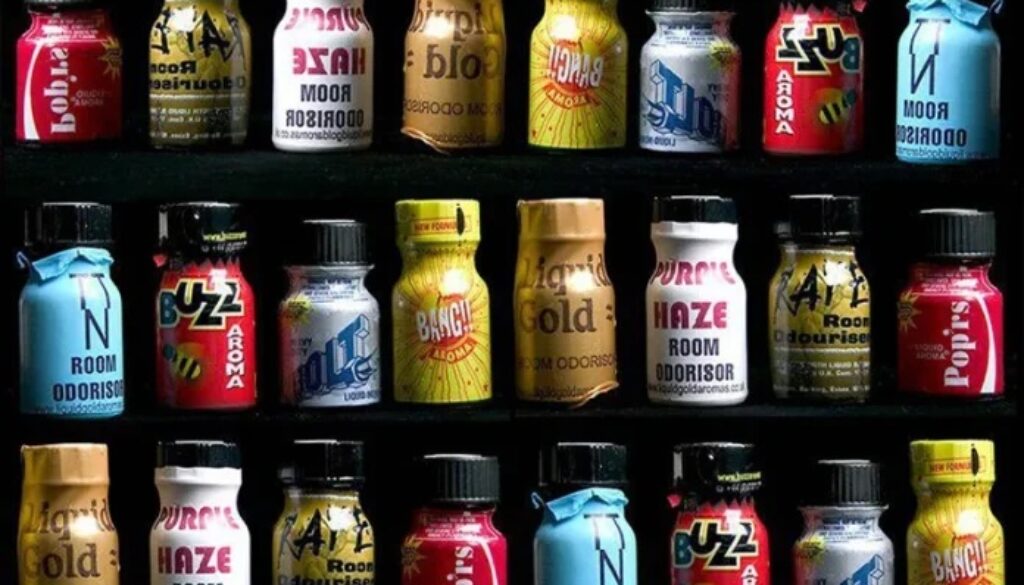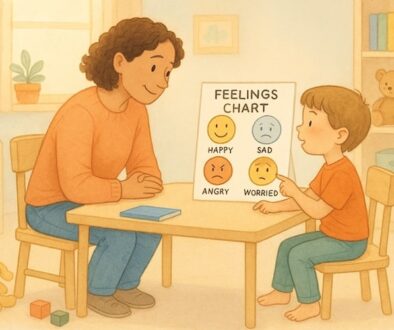Understanding Poppers: Uses, Effects, and Legal Status
Poppers is a slang term for a group of chemicals known as alkyl nitrites. These substances are part of the chemical class of alkyl nitrites, which have been used for medical and recreational purposes. Historically, amyl nitrite, the most well-known compound within this class, was introduced as a treatment for angina pectoris, a heart condition causing chest pain due to reduced blood flow to the heart. The effects of alkyl nitrites include vasodilation, or the widening of blood vessels, which can lead to a rapid drop in blood pressure and an increase in heart rate, providing temporary relief from heart pain. Over time, the recreational use of these substances became popular for their psychoactive and physiological effects, including a feeling of euphoria, warmth, and relaxation of smooth muscle tissues.
What Are Poppers?
Poppers are a group of volatile liquid substances that emit vapors which, when inhaled, provide various effects, including a short-lived rush or high, muscle relaxation, and an enhanced perception of sound and light. The term “poppers” originates from the popper bottle or ampule that needs to be “popped” open to release the vapor. The most common types of alkyl nitrites found within the poppers family include amyl nitrite, butyl nitrite, and isobutyl nitrite.
Uses and Effects
Recreationally, poppers are used primarily for their ability to enhance sexual experiences. The relaxation of smooth muscle tissues, including those in the sphincter muscles, can make sexual activity less painful and more pleasurable for some individuals. Additionally, the sensation of warmth and the rush, often described as a “head rush,” contribute to their popularity in social settings such as nightclubs and parties.
The physiological effects of inhaling poppers are almost instantaneous, peaking within a few seconds to minutes and wearing off rapidly, often within a few minutes. This short duration of effect is part of the reason for their widespread use in social and sexual contexts, as they can be administered repeatedly over a short period without the need for ingestion or injection.
Legal Status
The legal status of poppers varies significantly from country to country and, in some cases, within different jurisdictions of the same country. In many places, the sale and possession of poppers are legal, but their regulation can be complex due to the health risks they pose. Some countries have enacted laws specifically targeting the sale and distribution of alkyl nitrites, while others control them under broader chemical safety or drug abuse prevention laws.
In the United States, for example, the Consumer Product Safety Commission regulates the sale of poppers, and their sale can be considered illegal if marketed for human consumption. However, they are often sold under the guise of room deodorizers, leather polish, or tape head cleaner to circumvent these regulations. The Anti-Drug Abuse Act of 1988 banned the sale of butyl nitrite and certain other nitrites for recreational use. Amyl nitrite remains available by prescription for its original medicinal purpose.
In the United Kingdom, the Psychoactive Substances Act 2016 aimed to ban the production and sale of all “psychoactive substances” with certain exceptions (such as alcohol, tobacco, and food). Initially, it was thought that poppers would be banned under this act, but they were later excluded after a review of the evidence showed that their psychoactive effects were not directly on the central nervous system.
Restrictions on Sale, Particularly to Those Under 18
Many jurisdictions have specific restrictions on the sale of poppers, particularly to individuals under the age of 18. These restrictions are often in place due to the potential health risks associated with inhaling the vapors, which can include headaches, dizziness, nausea, and in severe cases, methemoglobinemia (a condition where a large amount of hemoglobin is unable to carry oxygen). The risks are especially pronounced in young individuals, leading to regulations that aim to prevent their access to such substances.
Selling poppers to individuals under 18 can be illegal in places where they are regulated, and vendors are required to verify the age of purchasers. The enforcement of these laws can vary, with some countries or regions conducting regular checks on vendors, while in others, enforcement may be lax.
Health Risks and Concerns
While poppers are often considered less harmful than other recreational drugs, they are not without their risks. The immediate side effects can include headaches, dizziness, nausea, and a significant drop in blood pressure that can lead to fainting. There is also a risk of developing methemoglobinemia, a serious condition in which the blood’s ability to carry oxygen is reduced.
Long-term use of poppers has been associated with increased risks of certain health issues, including cardiovascular problems, vision issues (such as maculopathy, a condition that can affect vision), and immune system depression. The risk of contracting sexually transmitted infections (STIs) may also increase due to lowered inhibitions and increased sexual activity associated with popper use.
Conclusion
While this article provides a comprehensive overview of poppers, including their uses, effects, and legal status, it’s crucial for individuals to approach their use with caution and awareness of the potential health risks involved. The varying legal status across different regions underscores the importance of understanding local laws and regulations regarding the possession and use of these substances.



